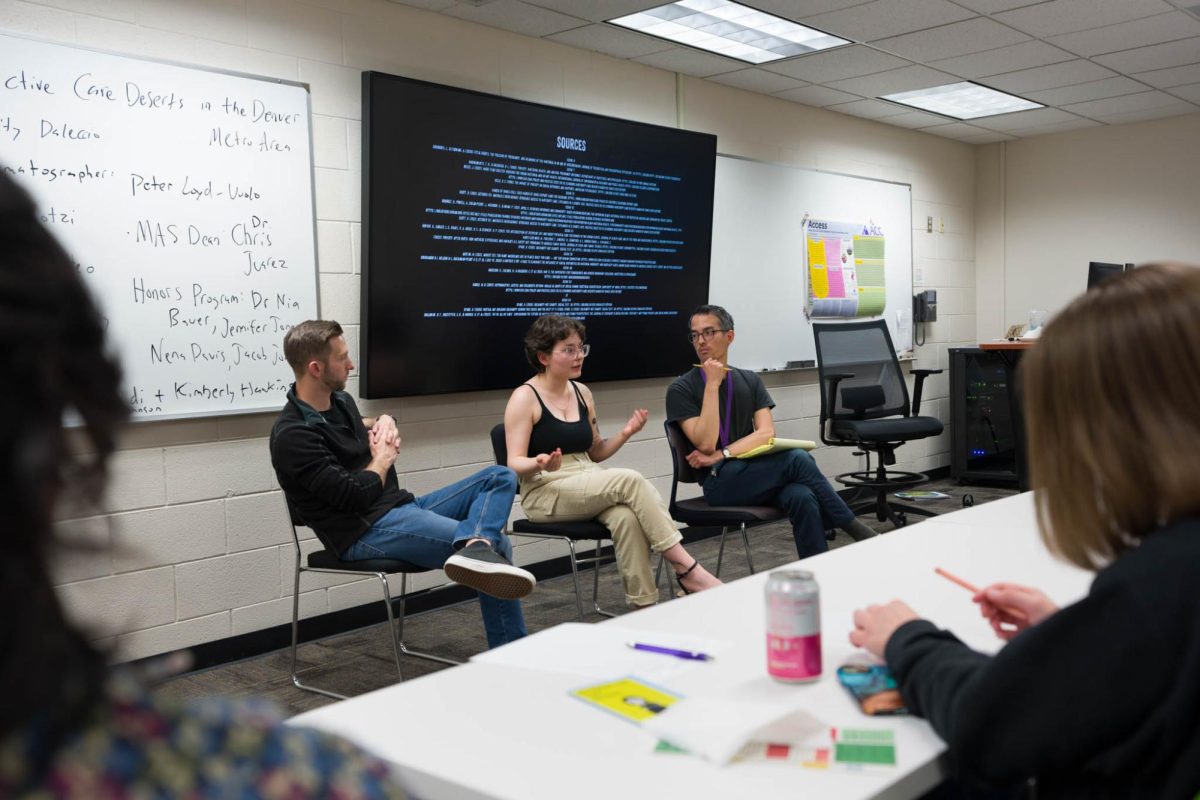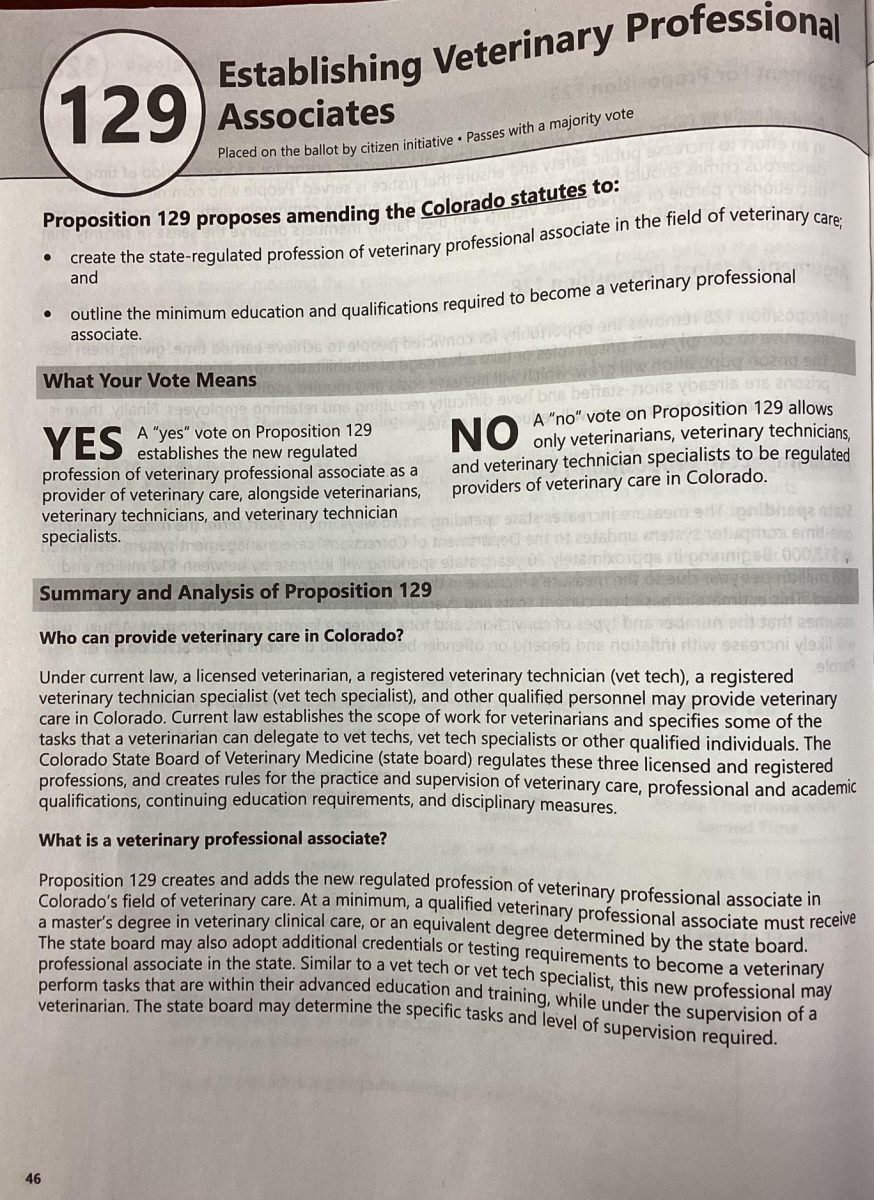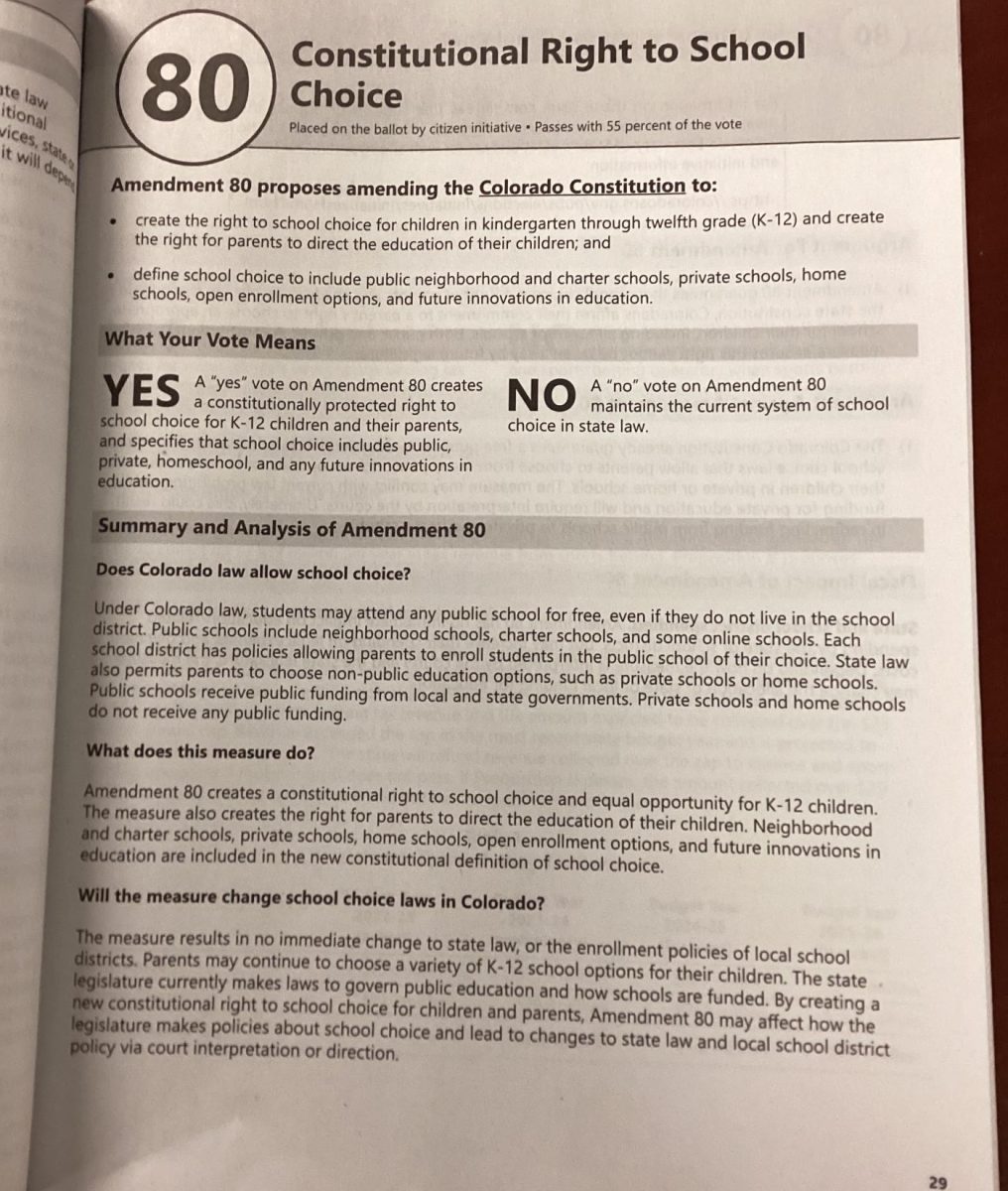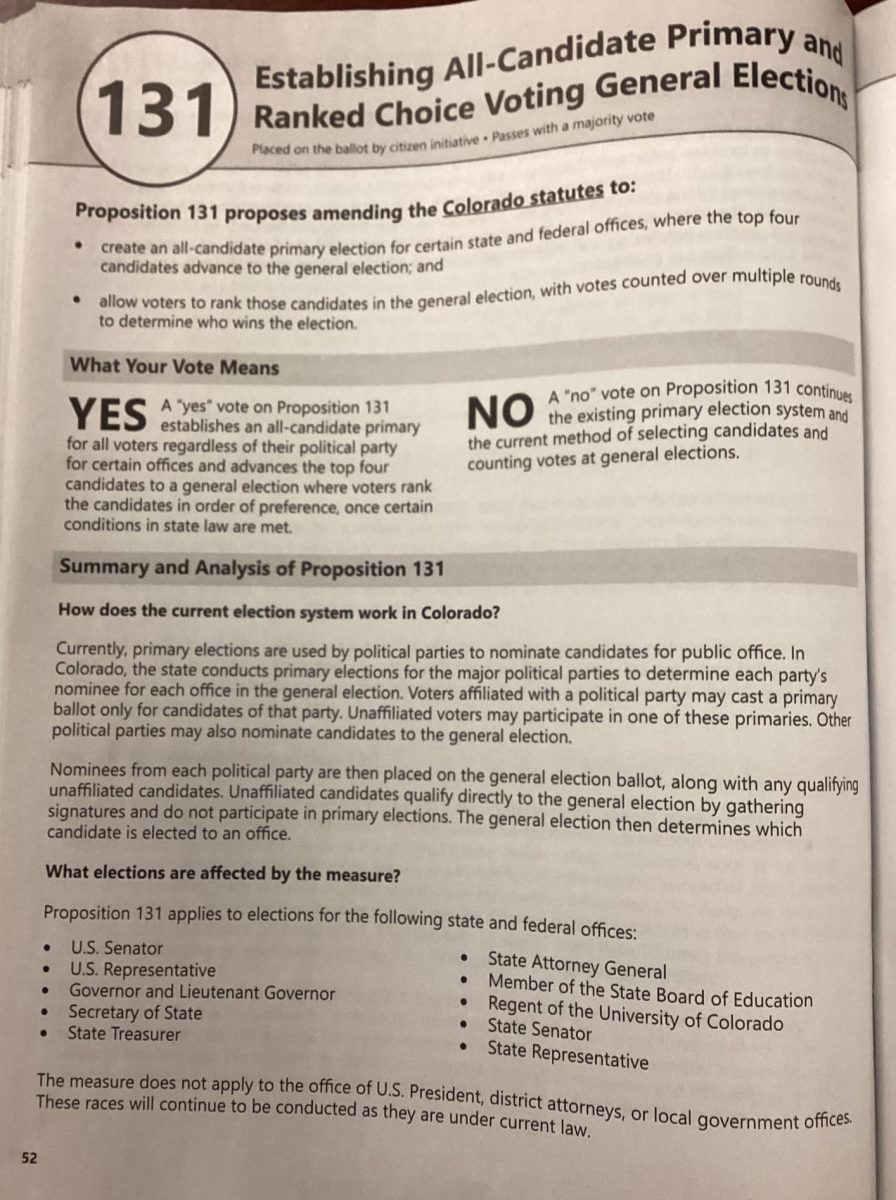The overturning of Roe V. Wade in 2022 has left dire consequences for pregnant people nationwide. Since then, many have been forced to travel out of state in order to seek reproductive care. Luckily, we live in Colorado, one of the states that have become safe havens for people no longer able to get the care that they need in their own states. But is Colorado a safe haven? On April 19th, at the Littleton Campus, ACC had a screening of a student-produced film, ACCESS: Reproductive Care Deserts in the Denver Metro Area. Directed by Felicity Daleccio, an honors student at ACC, this documentary explores the problems surrounding reproductive care in the Denver Metro Area and the concept of “reproductive care deserts”, also known as maternity care deserts, areas that lack care concerning expecting mothers.
Felicity Daleccio was working on a paper for the Honors Research Program. What started out as a ten-page paper turned to thirty-five pages. Through the work of a team including ACC students Peter Loyd-Vuolo (video and editing) and Hannah Matteo (animator), as well as local Littleton artist Sammiotzi (illustrator), and recent graduate from the Lamont School of Music, Jackson Gearing (composer), those thirty-five pages turned into an hour-long documentary.
The beginning of the film shows overhead shots of Denver, Colorado in the morning sun whilst a voiceover talks about the overturning of Roe v. Wade and how Denver doesn’t seem like the type of place that would have problems with reproductive care. This opening scene sets up the topic for the rest of the documentary. It deals with not how Denver has been a safe haven for pregnant people and people seeking reproductive care but, instead, how it has failed.
Throughout the documentary, several people are interviewed, from doulas, to district representatives, to everyday mothers. I expected these interviews to offer some insight into the problems and background information regarding Access’s subject. What I wasn’t expecting was to be gut-punched by the horrific experiences of treatment by medical staff during pregnancy and labor shared by the women who were interviewed. Whilst I’m not going to recount these experiences here, they reinforce the purpose of this documentary and enable it to have a lasting, powerful effect on the audiences.
Another aspect of this documentary that I found to be one of its strong suits is the animations that occasionally show up. Artist Sammiotzi and animator Hannah Matteo do an incredible job with giving a visual representation of the struggles of pregnant women in the United States. One of the animations represents the obstacles of navigating care as barbed wire fences followed by a chasm, followed by spikes, followed by a pool with a shark.
While all the information we are given about maternal health care in this documentary makes things seem bleak, the film doesn’t leave it there. While this film made me feel outrage at the injustices these women have to face just to receive health, it also gave me a sense of hope for the future. We are not only shown the effects of reproductive care desserts, but also what is being done to combat these challenges. We are shown doulas whose personal experiences have influenced them to help people in the situations they were once in.
Ultimately, this documentary is a must-see for those interested in learning about the problems surrounding reproductive care in the United States and what can be done in order to change that. This film is not an easy watch, but it is an incredibly important one, especially in this day and age. It’s educational, encouraging and inspiring. It reminds us that mental and emotional support for pregnant people is just as important as physical support. If you end up seeing this film, prepare to be outraged, but also prepare to be inspired to help make not only Colorado, but the entire United States a safer place for pregnant people to seek care.
Access: Reproductive Care Deserts in the Denver Metro Area is now available on Youtube via the channel Amateur Academics. Watch the trailer below:







